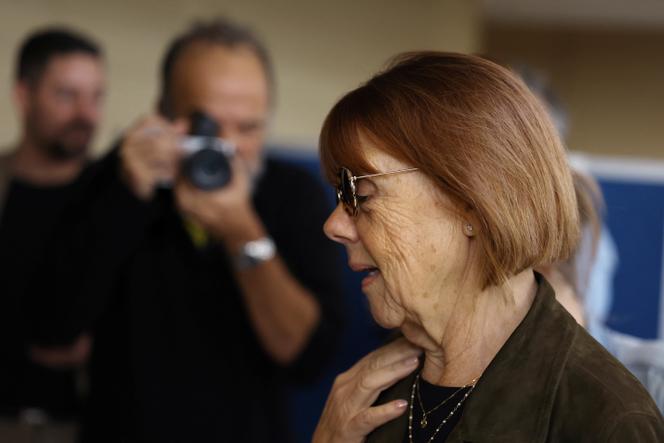


Psychiatrist François Amic took the stand for the second time at the Vaucluse criminal court. He had originally appeared on October 7 to present his expert opinion on five defendants in the mass rape trial centered on Dominique Pelicot, the man who repeatedly drugged his wife, Gisèle Pelicot, and invited dozens of men to rape her while she was unconscious. He returned on Monday, October 21, to present his opinion on five others. "Manipulable subjects," he said of the first defendants he examined. "A good candidate for manipulation," "one could believe that this gentleman was initially fooled," he persisted the second time.
On the defense benches, the findings were welcomed and used to illustrate and give credence to the clumsy words used by the majority of the accused, who repeated that they had been "manipulated." Both the prosecution and the plaintiffs' benches were exasperated by this endorsement of those who were attempting to shirk their own responsibility. On both sides of the courtroom, a bitter battle was being waged, with some trying to get the expert to say more than he could and should, and others trying to undermine the scope of his words.
Amic asserted a lot of things, sometimes venturing beyond the limits of his examinations, and escaping in a clever analytical pirouette when the case file nuanced some of his assertions. His hearing illustrated the eternal dilemma of the use of psychiatric expertise in criminal matters: If access to the file had been granted to him, he would have been reproached for basing his findings more on what he had read than on what he himself had observed. If he had been denied this access, or only very partially granted it, it would be tempting to set up legal documents against his observations, based solely on the statements of those undergoing expert examination. Tired of arguing against the expert's conclusions, the plaintiff's lawyers took refuge behind the nuclear weapon that the case file represents. "Have you seen the videos?" asked prosecution lawyer Antoine Camus. "No," replied Amic.
Nevertheless, the lively reactions in the courtroom bore witness to the fact that the psychiatrist had touched a nerve. Buoyed by the historic dimension of this case and by the mobilization of public opinion – every day new placards, written in every language, appear in the streets adjacent to the courthouse in support of Gisèle Pelicot and the room reserved for the public is never empty – the lawyers for the plaintiff are against anything likely to create a hierarchy of responsibility between Dominique Pelicot and the other defendants. They must remain this indistinct group of men, these penises filmed in close-up in the Pelicot's bedroom, indifferent and apparently deaf to the audible snores of the woman they were penetrating or trying to penetrate.
You have 60.03% of this article left to read. The rest is for subscribers only.
